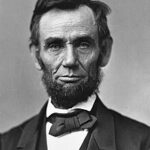Abraham Lincoln’s approach to slavery during his early presidency created significant controversy among moral reformers and abolitionists. The Lincoln slavery delay stemmed from his belief that preserving the Union must take precedence over immediate emancipation.
The Political Calculation
Lincoln’s famous 1862 letter to Horace Greeley crystallized his position. He stated he would save the Union with or without freeing slaves. This pragmatic stance aimed to prevent additional states from joining the Confederacy. Border states like Kentucky and Missouri remained crucial to Union victory. ⚖️ Lincoln balanced moral imperatives against political realities of a divided nation.
Abolitionist Frustration
Radical Republicans and abolitionists viewed slavery as an urgent humanitarian crisis requiring immediate action. Frederick Douglass criticized Lincoln’s gradualist approach as moral compromise. William Lloyd Garrison and other reformers demanded swift emancipation regardless of political consequences. They argued that millions of enslaved people could not wait for political convenience.
Strategic Considerations
Lincoln understood that premature emancipation could fracture the Union coalition. 💰 Economic concerns in border states created additional complications. The president needed time to build political support for comprehensive emancipation measures.
Impact:
The Lincoln slavery delay generated profound consequences that shaped American history and civil rights progress. This controversial approach created lasting tensions between pragmatic politics and moral leadership.
Immediate Political Consequences
Radical Republicans in Congress grew increasingly frustrated with Lincoln’s cautious approach. They pushed for immediate confiscation acts and emancipation measures. The delay strengthened Confederate resolve and international skepticism about Union war aims. 🔥 Abolitionist newspapers criticized Lincoln’s moral compromise, calling it betrayal of fundamental principles. European powers remained neutral partly due to confusion about Union slavery policies.
Humanitarian Costs
The Lincoln slavery delay prolonged suffering for millions of enslaved Americans. Each month of hesitation meant continued bondage for families seeking freedom. Escaped slaves faced uncertain legal status during this transitional period. Underground Railroad activists worked harder to compensate for lack of federal action. ⚠️ The moral cost of political calculation became increasingly apparent to contemporary observers.
Long-term Historical Impact
Lincoln’s gradual approach ultimately proved strategically sound but morally complex. The Emancipation Proclamation’s timing maximized political support while achieving moral objectives. However, the delay established precedent for prioritizing political expediency over civil rights. 📊 This pattern would repeat throughout Reconstruction and the civil rights era, showing how Lincoln slavery delay influenced future policy decisions.
